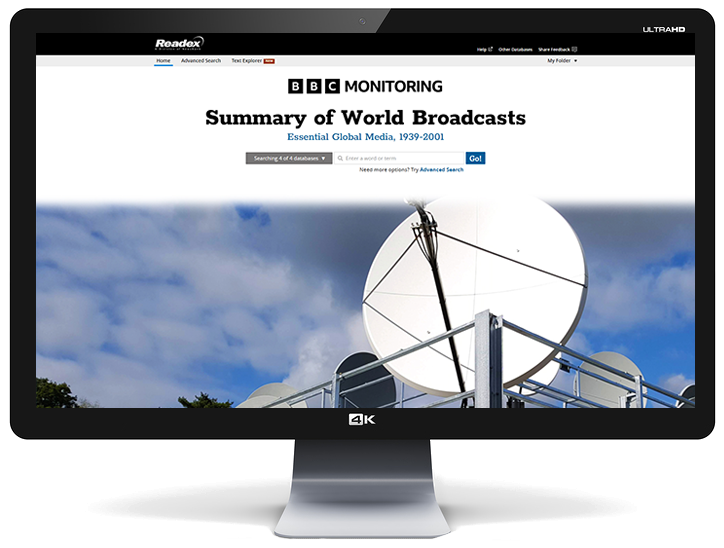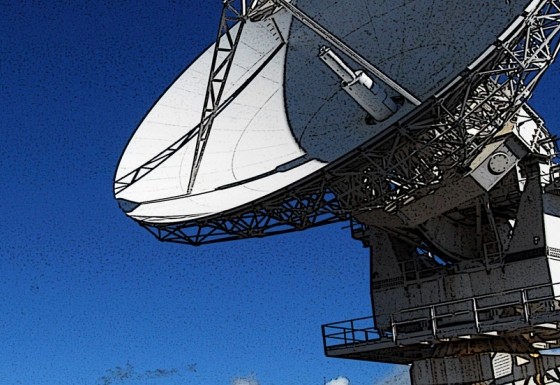Summary
Learn what makes this product unique
- Previously inaccessible transcripts of original radio and television broadcasts, translated into English and summarized by BBC Monitoring
- Exceptional real-time coverage of critical world events, from the start of WWII to the early 21st century (1939-2001)
- Open-source intelligence transcripts offer unprecedented academic research value
Give It a Try
Take a step toward access for your library
“...an amazing resource.”
“This is a history of the world speaking to the world.”
—
Nick Cull, Professor of Communication, University of Southern California
Got a Minute?
Learn more in this short video
Play the video
Areas of Study
This product supports the following subjects
African & Middle Eastern Studies
Asian Studies
British & European Studies
Cold War Studies
Government Studies
Immigration Studies
Latin American Studies
Politics
Russian & East European Studies
South Asian Studies
STEM History
War & Conflict
World History
Tell your Library



















